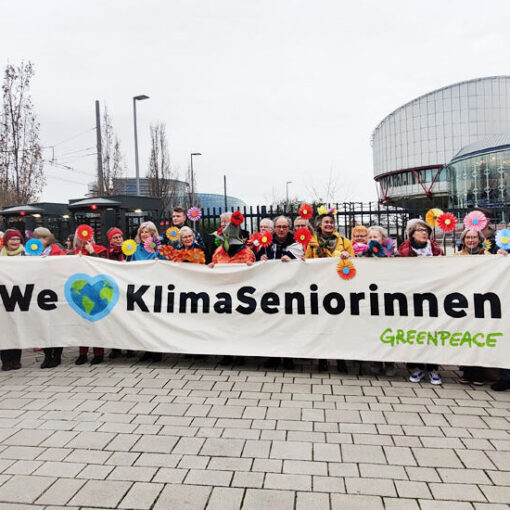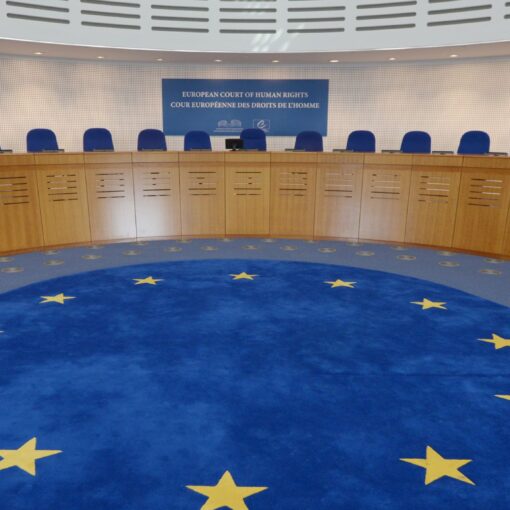Each month, Arnold & Porter and the Sabin Center for Climate Change Law collect and summarize developments in climate-related litigation, which we also add to our U.S. and non-U.S. climate litigation charts. If you know of any cases we have missed, please email us at columbiaclimate at gmail dot com.
Here are the latest additions to the Climate Case Chart
Update #74 (May 5, 2015)
FEATURED DECISION
D.C. Circuit Dismissed Challenges to Car and Truck Greenhouse Gas Standards
The D.C. Circuit dismissed challenges to federal greenhouse gas emissions and fuel economy standards for cars and trucks. The regulations were issued by the U.S. Environmental Protection Agency (EPA) and the National Highway Traffic Safety Administration (NHTSA). The car standards were finalized in 2010, and the D.C. Circuit had already upheld them once in 2012. The truck standards were finalized in 2011. The D.C. Circuit said the petitioners who claimed that EPA had violated the Clean Air Act by failing to provide the car and truck regulations to the Science Advisory Board prior to publication had not established standing. The court said the plaintiffs had not demonstrated causation or redressability for the alleged injury—increased cost to purchase vehicles—because even in the absence of the EPA standards, the “substantially identical” NHTSA regulations would continue to apply. The court also dismissed challenges to the truck standards brought by “a business that promotes the use of vegetable oil in place of traditional diesel fuel”; the company alleged that the standards made its products economically infeasible and claimed that the regulations were arbitrary and capricious because, among other reasons, they ignored lifecycle greenhouse gas emissions. The D.C. Circuit said it did not have original jurisdiction over the company’s claim against NHTSA because under NHTSA regulations, the company’s request for reconsideration of the truck standards had been deemed a petition for rulemaking; jurisdiction for review of denials of petitions for rulemaking is in the district courts. With respect to the claim against EPA, the D.C. Circuit said that the company did not fall within the zone of interests protected by the statute. Delta Construction Co. v. EPA, Nos. 11-1428, 11-1441, 12-1427; California Construction Trucking Association, Inc. v. EPA, No. 13-1076 (D.C. Cir. Apr. 24, 2015): added to the “Challenges to Federal Action” slide.
DECISIONS AND SETTLEMENTS
Colorado Federal Court Vacated Approval of Navajo Mine Expansion Due to Missing Analysis of Indirect Effects
The federal district court for the District of Colorado vacated the approval of a permit revision that authorized expansion of the Navajo Mine in New Mexico. The court also vacated the environmental assessment and finding of no significant impact (EA/FONSI) that the Office of Surface Mining Reclamation and Enforcement (OSM) had prepared for the expansion. In March, the court had ruled that OSM’s environmental review should have considered the indirect effects of the mine’s expansion—in particular, the impacts of mercury deposition in the area of the coal-fired Four Corners Power Plant, for which the Navajo Mine was the sole supplier of coal. In its order vacating the EA/FONSI and permit review approval, the court found that prospective economic harm to the mine’s operator did not outweigh “doubts concerning the validity of OSM’s actions that are raised by the deficiencies in OSM’s EA/FONSI and its approval” of the permit revision. The court also found that the operator and federal respondents had not demonstrated that vacatur was likely to result in closure of the mine or power plant. On April 16, 2015, the Tenth Circuit Court of Appeals rejected the request by the mine’s operator for a stay. Diné Citizens Against Ruining Our Environment v. United States Office of Surface Mining Reclamation & Enforcement, No. 15-1126 (10th Cir. stay denied Apr. 16, 2015); No. 12-cv-01275 (D. Colo. order Apr. 6, 2015): added to the “Challenges to Coal-Fired Power Plants” slide.
California Appellate Court Rejected Challenge to Analysis of Proposed Development’s Greenhouse Gas Impacts
A California Court of Appeal upheld the environmental review and land use approvals for a portion of Newhall Ranch, a major commercial and residential development in Los Angeles County. In an unpublished opinion, the court approved the selection of a greenhouse gas emissions significance criterion that was based on the emissions reductions goal in the California Global Warming Solutions Act of 2006, which required adoption of a statewide plan to reduce greenhouse gas emissions to 1990 emissions levels by 2020. The appellate court noted that three other appellate court cases had approved use of significance criteria based on this mandate. The court rejected the argument that this criterion was “illusory” and that the use of a “business-as-usual” emissions baseline was legally impermissible—but noted that the California Supreme Court is currently considering the baseline issue in Center for Biological Diversity v. Department of Fish and Wildlife, another case concerning the CEQA review for Newhall Ranch. Friends of the Santa Clara River v. County of Los Angeles, No. B256125 (Cal. Ct. App. Apr. 21, 2015): added to the “State NEPAs” slide.
After New EIR, California Superior Court Removed Bar to Expansion of Chevron Refinery
A California Superior Court discharged the writ of mandate that barred Chevron Products Company (Chevron) from proceeding with an expansion project at its oil refinery in the City of Richmond in northern California. The writ was granted in 2009, when the court held that the City’s review under the California Environmental Quality Act had been inadequate. Among the shortcomings identified by the court was a failure to mitigate greenhouse gas emissions. After an appellate court affirmed the Superior Court’s decision in 2010, the City conducted another review. A final environmental impact report was certified in July 2014. Communities for a Better Environment v. City of Richmond, No. MSN08-1429 (Cal. Super. Ct., stipulation and order discharging peremptory writ of mandate filed Apr. 13, 2015): added to the “State NEPAs” slide.
Alaska Federal Court Issued TRO to Prevent Greenpeace from Boarding Arctic-Bound Vessels
The federal district court for the District of Alaska granted a temporary restraining order (TRO) that barred Greenpeace, Inc. (Greenpeace USA) and individuals associated with Greenpeace USA from trespassing and interfering with operations on three vessels that Shell Offshore Inc. and Shell Gulf of Mexico Inc. (together, Shell) plan to use for 2015 oil exploration off the coast of Alaska in the Arctic Ocean. Six individuals had boarded a Shell heavy transport vessel in the Pacific Ocean and scaled the drilling vessel the transport vessel was carrying. The individuals, one of whom was an American employee of Greenpeace, were part of an operation called “The Crossing” that Greenpeace promoted on its website as part of its Save the Arctic campaign. The court concluded that Shell was likely to succeed on the merits of at least one of its claims against Greenpeace USA. The claims included intentional tortious interference with maritime navigation, trespass and trespass to chattels, private nuisance, and civil conspiracy. The court also found that Greenpeace USA’s role “in perpetuating the presence of activists” aboard the drilling vessel created a likelihood of immediate irreparable harm with respect to the three vessels. In addition, the court found that the balance of equities and public interest favored granting the TRO, noting that Shell had a “significant and legally valid interest in conducting authorized exploration on its arctic leases without dangerous or tortious interference.” The court indicated, however, that it would narrowly tailor the injunctive relief to minimize the impact on Greenpeace USA’s legitimate interests in conducting protests and monitoring drilling activities. In addition to barring trespass on the three vessels, the court barred entry into 1,000-meter “safety zones” around the three vessels and set a schedule for determining whether Shell was entitled to preliminary injunctive relief related to other vessels in its fleet. Shell Offshore Inc. v. Greenpeace, Inc., No. 3:15-cv-00054-SLG (D. Alaska, filed Apr. 7, 2015; order granting TRO Apr. 11, 2015): added to the “Climate Protesters and Scientists” slide.
EPA Ordered to Make Limited Changes to PSD and Title V Permitting Regulations After Supreme Court’s Decision in UARG v. EPA
In an order governing further proceedings after the Supreme Court’s 2014 decision in Utility Air Regulatory Group v. EPA, the D.C. Circuit accepted EPA’s view that UARG v. EPA did not require EPA to start from scratch to establish a greenhouse gas permitting regime for stationary sources. Instead, the D.C. Circuit ordered EPA to act “as expeditiously as practicable” to rescind Clean Air Act regulations that required Prevention of Significant Deterioration (PSD) and Title V permits solely based on a source’s greenhouse gas emissions. The court also ordered EPA to rescind regulations that would have required EPA to consider lowering the greenhouse gas emissions thresholds for permitting and to “consider whether any further revisions to its regulations are appropriate in light of UARG v. EPA.” On April 30, the EPA Administrator signed a direct final rule that authorized rescission of PSD permits upon requests from applicants who demonstrate that they would not have been subject to PSD permitting but for their greenhouse gas emissions. The regulation is also to be published as a proposed rule in case adverse comments are received. Coalition for Responsible Regulation v. EPA, Nos. 09-1322 et al.; Coalition for Responsible Regulation v. EPA, Nos. 10-1073 et al.; Coalition for Responsible Regulation v. EPA, Nos. 10-1092 et al.; American Chemistry Council v. EPA, Nos. 10-1167 et al. (D.C. Cir. order Apr. 10, 2015): added to the “Challenges to Federal Action” slide.
EPA Agreed to Schedule for Setting Renewable Fuel Obligations for 2014 and 2015
EPA, the American Fuel & Petrochemical Manufacturers (AFPM), and the American Petroleum Institute (API) reached an agreement regarding a schedule for EPA to propose and finalize renewable fuel standards for 2014 and 2015. AFPM and API sued EPA in the federal district court for the District of Columbia in March seeking to compel EPA to fulfill its obligations to promulgate the standards. The proposed consent decree—notice of which was published in the Federal Register on April 20—requires EPA to propose renewable fuel obligations for 2015 by June 1, 2015 and to finalize them by November 30, 2015. EPA would also have until November 30, 2015 to finalize the obligations for 2014 and to respond to the plaintiffs’ request for a partial waiver of renewable fuel applicable volumes for 2014. EPA also indicated that it was its intention to propose and finalize the renewable fuel volumes for 2016 in the same timeframe as it was addressing the 2015 volumes. American Fuel & Petrochemical Manufacturers v. EPA, No. 1:15-cv-394 (D.D.C., proposed consent decree filed Apr. 10, 2015): added to the “Challenges to Federal Action” slide.
Oregon Federal Court Vacated EIS and ROD for Vegetation Management Project in National Forest, But Upheld Climate Analysis
The federal district court for the District of Oregon vacated an environmental impact statement (EIS) and record of decision (ROD) for the Snow Basin Vegetation Management Project in the Wallowa Whitman National Forest in Oregon. In December 2014, the court ruled that the U.S. Forest Service defendants had not complied with the National Environmental Policy Act and the National Forest Management Act (although the court found no fault with the analysis of potential climate change impacts due to short-term reductions in the forest’s capacity to store carbon). In its order vacating the EIS and ROD, the court said that it would not void three timber sales contracts that the Forest Service had voluntarily suspended; the court concluded that the determination of what to do regarding the contracts was best left to the agency’s discretion. League of Wilderness Defenders/Blue Mountains Biodiversity Project v. Peña, No. 3:12-cv-02271 (D. Or. opinion and order Apr. 6, 2015): added to the “Stop Government Action/NEPA” slide.
NEW CASES, MOTIONS, AND NOTICES
Lawsuit Challenged NMFS Conclusions About Impacts of Shrimp Trawl Fisheries on Sea Turtles
The nonprofit organization Oceana, Inc. (Oceana) filed an Endangered Species Act (ESA) action in the federal district court for the District of Columbia against the Secretary of Commerce, the National Oceanic and Atmospheric Administration, and the National Marine Fisheries Service (NMFS). Oceana challenged a biological opinion issued by NMFS that considered whether the continued operation of Southeast U.S. shrimp trawl fisheries jeopardizes sea turtles protected by the ESA. The complaint included allegations that NMFS disregarded climate change threats to sea turtle habitat and prey. Oceana, Inc. v. Pritzker, No. 1:15-cv-00555 (D.D.C., filed Apr. 14, 2015): added to the “Stop Government Action/Other Statutes” slide.
Here are recent additions to the Non-U.S. Climate Litigation Chart.
EU Directive precludes Italian Law regulating renewable energy credits in EU greenhouse gas emissions allowance trading scheme. An Italian company, Green Network SpA (“Green Network”), imported renewable energy from a Swiss supplier in 2005. Under Italian law, energy companies were required to purchase a certain number of green certificates each year, but could seek an exemption where they imported renewable energy from countries with analogous laws promoting renewable energy. Where the exporting country was not a member of the European Union, the exemption was available only if there was a prior agreement between the importing and exporting countries regarding recognition of guarantees of origin. When Green Network requested an exemption from its obligation to purchase green certificates, the Italian national grid manager rejected that request since there was no agreement regarding guarantees of origin between Italy and Switzerland at the time the renewable energy was imported. Green Network brought an action in administrative court, which was dismissed. Green Network appealed the dismissal, and the appeals court referred to the European Court of Justice the question, inter alia, whether the Italian law conflicted with EU directives. The Court held that the Italian law was precluded since guarantees of origin fall within an area largely covered by EU law. Green Network SpA v. Autorità per l’energia elettrica e il gas (Gestore dei Servizi Energetici SpA – GSE, intervening) (European Court of Justice (Fourth Chamber) [2014] C-66/13) – Added to EU Emissions Trading Scheme
Question referred by UK court regarding whether EU “principle of equal treatment” prevents differential treatment of Switzerland in EU carbon credit trading scheme. The European Union temporarily suspended the greenhouse gas emissions allowance trading scheme for flights coming in and out of the EU, for the purpose of encouraging an agreement among members of the International Civil Aviation Organization to regulate aviation emissions. Flights between EU countries and Switzerland, however, were excluded from the suspension. Swiss International Airlines AG (Swissair) sued, claiming that the EU decision was invalid because it breached the principle of equal treatment. A lower court found that the principle of equal treatment did not apply to differential treatment by the EU towards non-EU member states such as Switzerland, and that, even if the principle did apply, it had not been breached in this case. On appeal, the court found that sufficient doubt existed as to the scope of the equal treatment principle and its application in this case to justify a referral to the European Union Court of Justice, the only court with jurisdiction to declare an EU law invalid. R. (on the application of Swiss International Airlines AG) v. Secretary of State for Climate Change and Energy (United Kingdom Court of Appeal (Civil Division) [2015] EWCA Civ 331) – Added to EU Emissions Trading Scheme
UK Court finds that Barclays violated duty of confidentiality to a client seeking to purchase a carbon trading company when Barclays itself acquired the company. CF Partners (UK) LLP (“CFP”) approached Barclays Bank PLC (“Barclays”) seeking financing and advice to enable CFP to acquire Tricorona AB (“Tricorona”), a company operating in the carbon credits market and holding a large portfolio of Certified Emissions Reductions (“CERs”). Subsequently, Barclays and Tricorona used information gained from their relationship with CFP to arrange for Barclays to acquire Tricorona. CFP brought suit against Barclays and Tricorona, seeking compensation for the defendants’ purported misuse of confidential information and breach of an exclusivity agreement. Based on evidence presented at trial, the court found that neither Barclays nor Tricorona owed an obligation of exclusivity to CFP at the relevant times. The court found, however, that CFP provided confidential information to Barclays and Tricorona regarding the value of Tricorona’s portfolio of CERs and that the defendants wrongfully used this information to their own advantage by arranging for Barclays to purchase Tricorona. The court held Barclays and Tricorona jointly liable for each other’s breaches of confidentiality and entered a judgment o f ten million pounds in compensatory damages. Shortly after the opinion was issued, the parties reached a undisclosed settlement covering all outstanding matters including costs and appeals. Click here for an article regarding the settlement. CF Partners (UK) LLP v. Barclays Bank PLC (United Kingdom, High Court of Justice Chancery Division [2014] EWHC 3049) – Added to Suits against Corporations slide.




